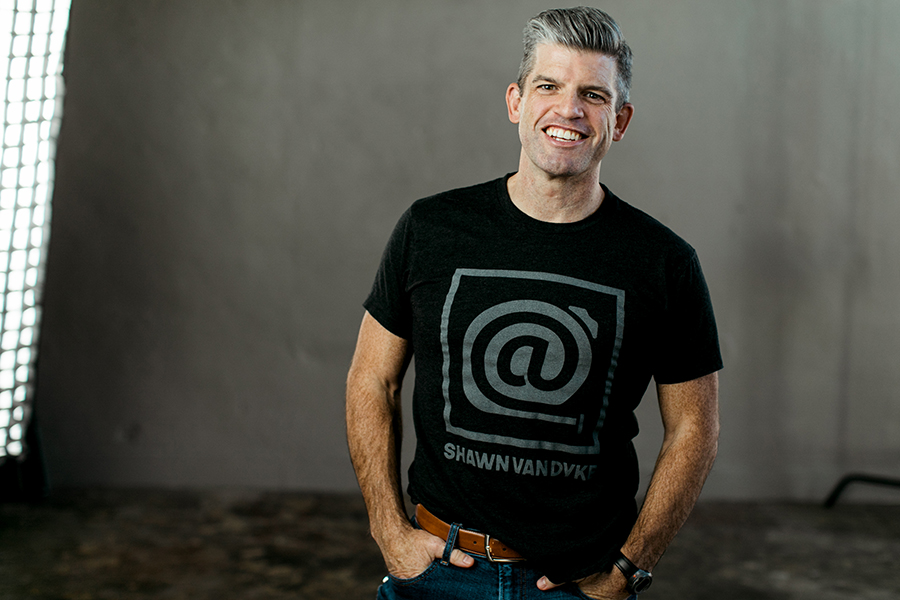When the only certainty is change
Meet Shawn Van Dyke
Shawn Van Dyke has a very clear message for every homebuilder who resists fully integrating online communication into their operation.
Don’t.
If the pandemic has taught the construction industry anything, it’s the power of virtual connections. Van Dyke should know. The respected construction business coach, mentor, author, and speaker has made it his life’s calling to help homebuilders, remodelers, and contractors run their business as effectively as they’ve mastered their trade. His company, Built to Build, works closely with hundreds of construction industry professionals on doing just that, even in a pandemic.
The construction industry will be better from this. It already is.
Video Reply
Take Loom, a video software tool that he’s a big fan of. “It’s a Google Chrome extension. It’s free. I use it a lot to communicate with my customers and clients,” Van Dyke explains. “They send me an email. I just turn on Loom and shoot them back a video message because it’s faster and the communication is clearer. If I’m trying to be funny, they can see that. There’s no confusion about meaning.”
That’s one communication application. Van Dyke sees many more. “Video is everything for a business right now. A lot of business owners say, ‘I know, I know. I should be doing more videos for my website or marketing.’ You should also be doing videos for your employees, communicating with them and training them. There’s no reason why you can’t have training videos for every process and system.”
Contactless Meetings
Van Dyke says that’s just the beginning. Video-everywhere and other online tools will soon transform the entire builder-customer relationship, especially in the early stages.
“Customers have changed. They don’t want you in their homes,” Van Dyke observes. “You better have a smooth, step-by-step process to work with them without meeting.”
Surprising Expert
So how do you get smart quickly with technologies you may know nothing about? Which smartphone apps are best for you? Van Dyke has a can’t-miss suggestion: Ask a young person.
“Find someone under 25 and ask them. I’m serious. If it’s a younger employee, I know you may think, ‘They don’t have that much experience. We’re training them.’ Trust me on this technology stuff,” Van Dyke says. “They may be young, but they’re very, very valuable. They’re using the apps you need.
Podcasting is huge. A lot of companies now use podcasting to train their people
“Take them out to lunch. Ask, ‘How would you improve company communication?’ Listen for about an hour. Then do exactly what they say.”
One of those ideas you’ll likely hear from a young advisor is podcasting—recorded audio chats you can download and listen to at any time, such as on the way to a jobsite or supplier. “Podcasting is huge. A lot of companies now use podcasting to train their people on leadership skills, business processes, and continuous improvement topics,” Van Dyke says.
Jobsite Policy
Because Van Dyke works with clients across the country, he finds it tough to generalize about pandemic safety regulations. The U.S. is a quilt pattern of jobsite safety mandatories, varying by state, county, or other jurisdictions. How can a builder, general contractor, or other responsible official limit liability if, God forbid, someone got sick on their watch?
“I recommend clients observe what their trade association, like the National Association of Home Builders, says or the CDC and OSHA. What they say should be your policy. That way you can say, ‘We’re doing the best we can with the information available. This is our policy. It may be inconvenient but it’s the right thing to do,’” he advises.
Better Days
It may be tough to find a silver lining in a global event that has shattered business as usual. If there is one, Van Dyke believes it will be communication and a financial cushion for the next downturn.
“The construction industry will be better from this. It already is. We’re getting more efficient and better at communication. It may mean telling a prospect ‘I’m not driving across town to meet you’ because there are now virtual ways to meet. You don’t have to be the bad guy. Put the blame on company policy,” he smiles.
Click here to see more advice from other industry professionals

